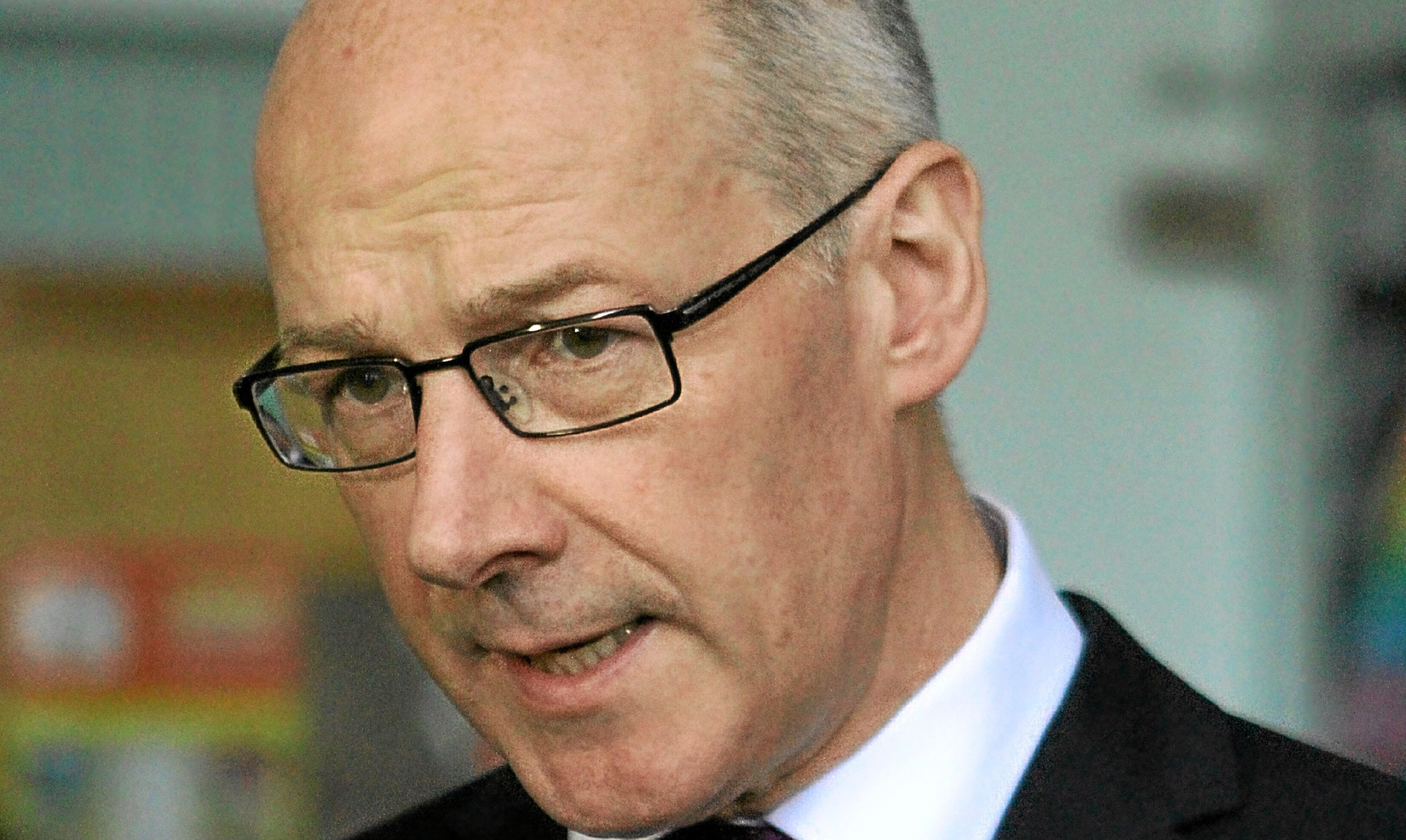The Deputy First Minister lashed out at the Tories for “utterly misrepresenting” the Named Persons scheme after the opposition party demanded an emergency brake on the scheme.
John Swinney, who is also the education secretary, went on the counter during a Holyrood debate on the policy, which assigns a health worker or teacher to every child in Scotland.
Liz Smith, a Conservative MSP for Fife, said the policy is “a bureaucratic nightmare” that will impose greater workloads on stretched public workers.
It will fail to protect children from harm because its universal nature means the net is spread too wide, while intruding into family life, the Scottish Conservatives argued.
Ms Smith, the Scottish Conservative’s education spokeswoman, told MSPs there is a “growing parliamentary consensus for a major rethink”.
“But there is also growing concern expressed by many frontline professionals – many of whom have no party political affiliation,” she said.
“We believe there is an urgent need to address the practical concerns of professionals and parents about the workability of the policy which, if it is not dealt with, could seriously undermine the welfare of children across Scotland.”
Mr Swinney hit back saying the Conservatives have been “going around the country for months utterly misrepresenting the policy”.
He added it “insults” the work of health workers and teachers to refer to them as “state snoopers”.
But he accepted the Scottish Government now has “work to do to build confidence in this policy” in a climate “thick with misinformation and scaremongering”.
“It [the Named Person policy] is about how we can best help families get the help they need, when they need it.
“It is not about undermining family, but how we can give a guarantee of the assistance that can strengthen and improve it,” he said.
The Scottish Conservatives used the debate to call for a pause on the roll-out of the programme, stopping short of their stated aim to scrap the legislation altogether.
Every child in Scotland will be assigned a Named Person under the policy, which has been piloted in Fife since 2009 and is set to be rolled out nationally on August 31.
Public sector professionals, such as health workers and senior teachers, will be given named person status under the legislation.
The policy came under sharp focus after the conviction of Rachel and Nyomi Fee for the appalling torture and murder of Fife toddler Liam Fee.
The 2-year-old had a version of the named person under the Fife pilot, although the council said the system in place at the time of Liam’s death was not the same as the one laid out in the Children and Young People (Scotland) Act 2014.
A significant case review is being held into the circumstances of Liam’s death.
A wide range of children’s organisations have backed the Named Persons scheme, including Barnardo’s and National Parent Forum of Scotland.
But it is bitterly opposed by others.
Lesley Scott, who is based in Perth and works for the Tymes Trust, a charity which supports those with ME, describes the scheme as “illiberal and authoritarian”.
She told The Courier: “What the Named Person does is it takes away the families’ authority over how they care for and educate their own children and hands it to the state.
“It provides vast new powers to health workers and teachers and it is wrong to diminish the dangers of this legislation.”
She said a major problem with the legislation was the definition of wellbeing, which could be interpreted in very different ways.
MSPs passed the legislation, one part of which covers the Named Person, by 103 votes to none in 2014.
